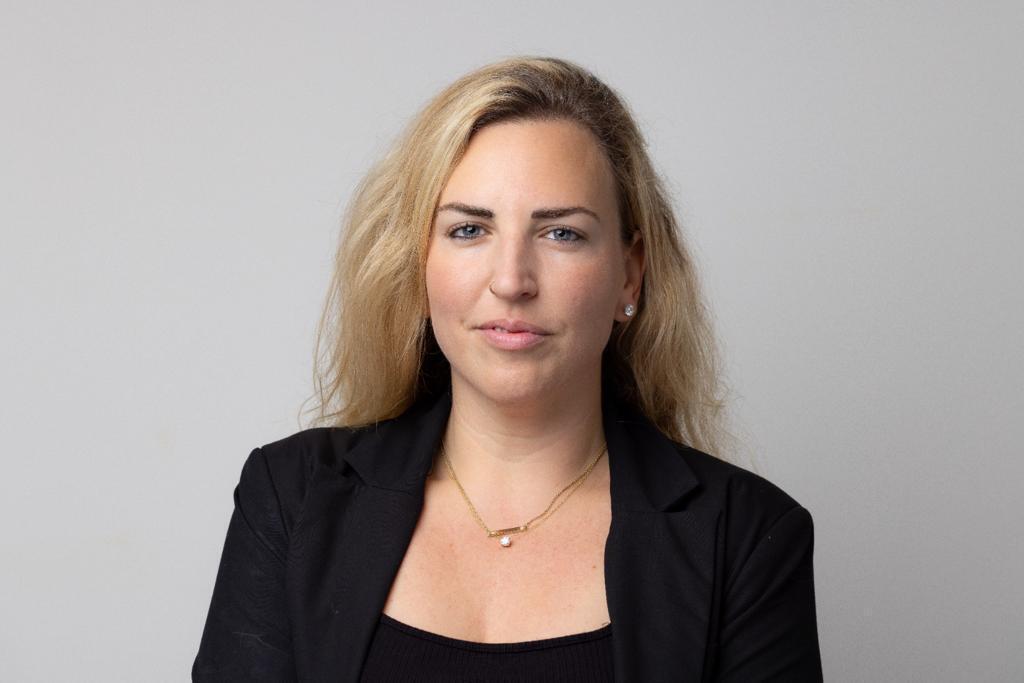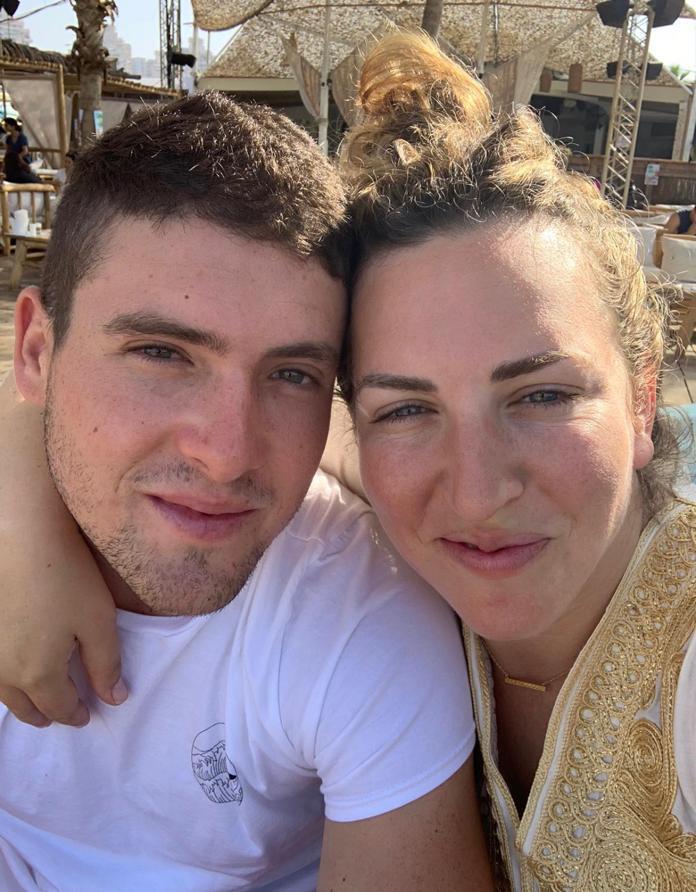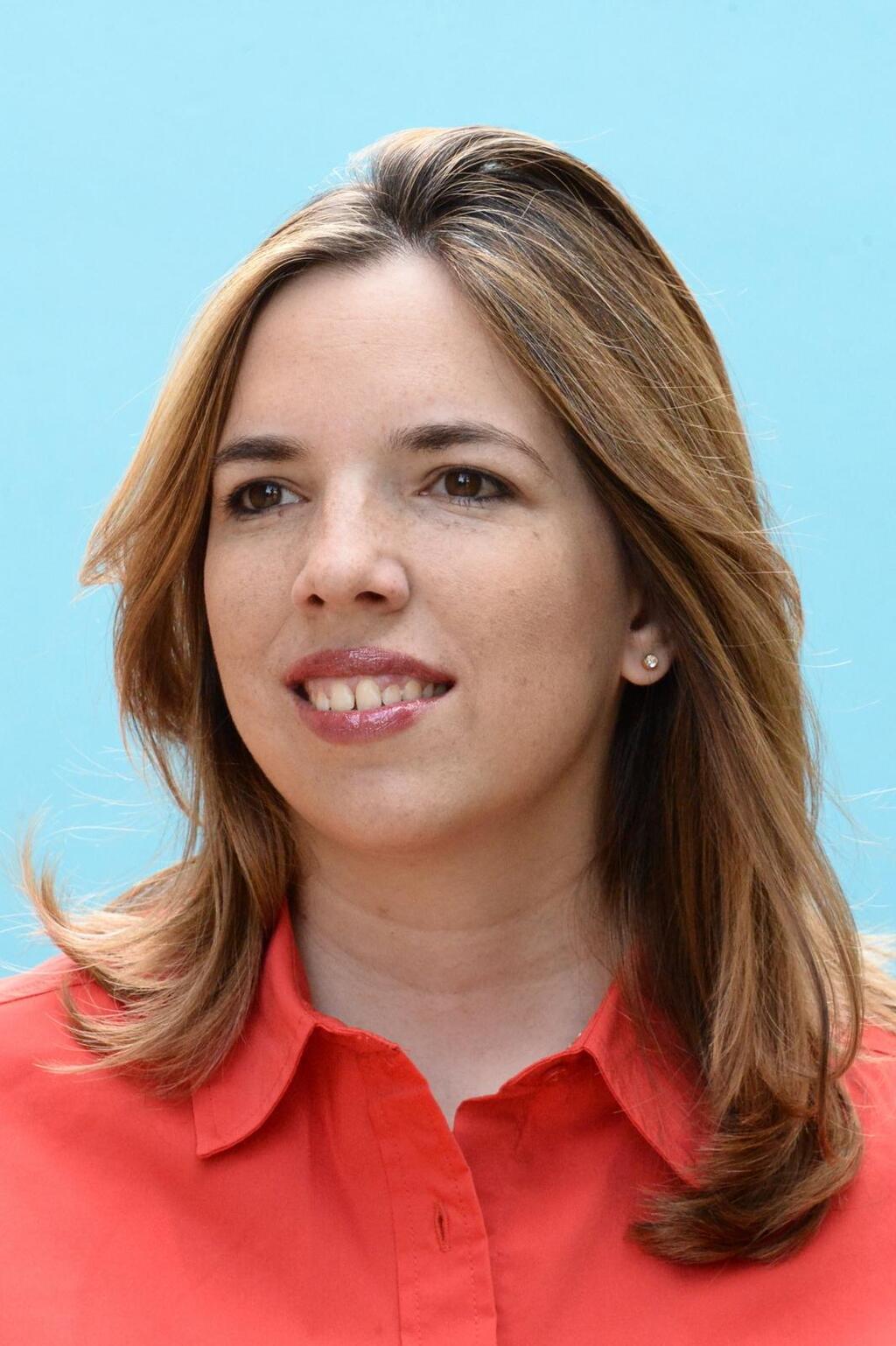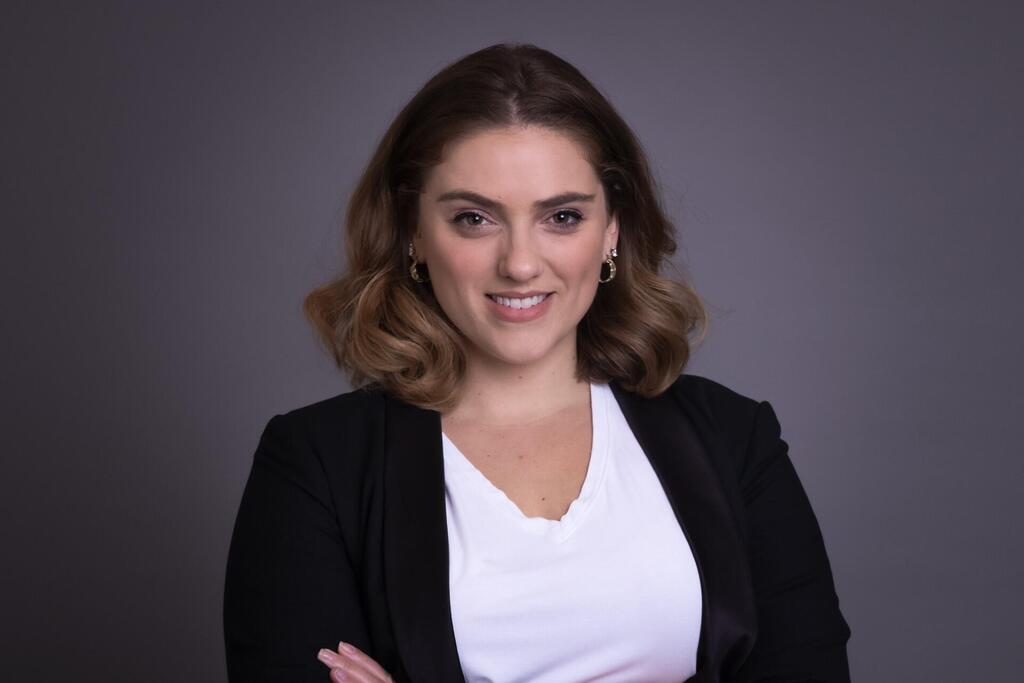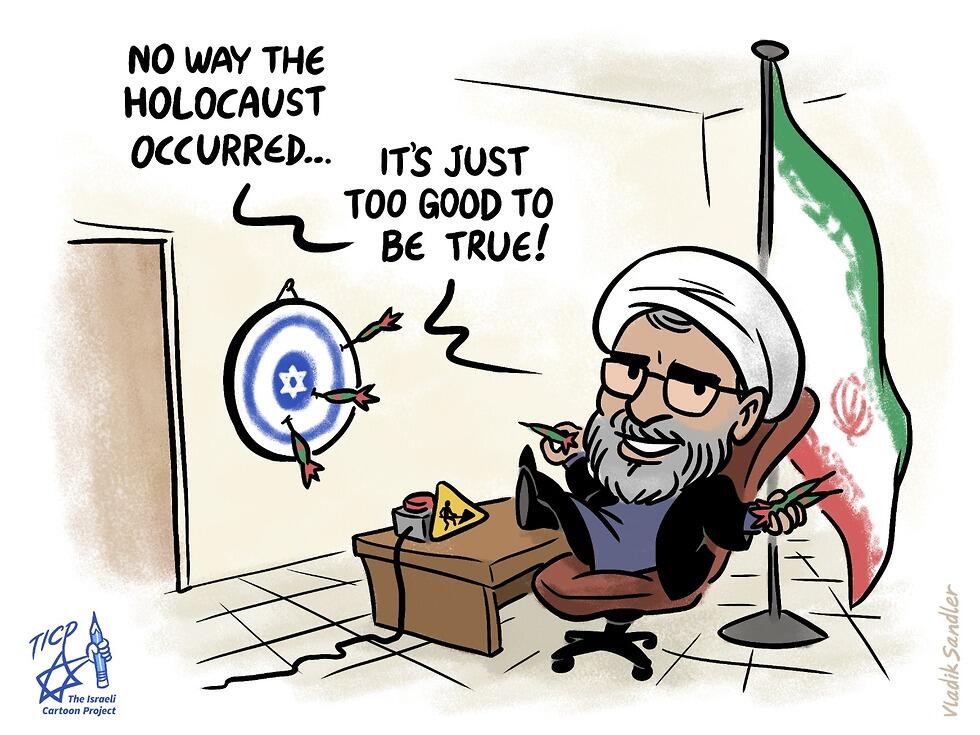Getting your Trinity Audio player ready...
Women are playing an increasingly crucial role on the frontlines of the fight against global antisemitism that has surged following October 7.
One needs to look no further than the story of Morielle, Liram and Tal-Or – three women who embody that struggle, each in her own way. These are their stories.
Morielle Lotan, 41, is an American-Israeli businesswoman from New York who advises startups, governments and investors on energy, security and climate issues. Her nephew, Adir Mesika, was murdered at the Nova music festival, where he fought off terrorists with his bare hands, saving the lives of his girlfriend and two others who hid in a nearby shelter. Lotan channeled the grief and pain from her terrible loss into an inspiring, ambitious foundation called The ADIR Challenge, which innovates the combat of antisemitism and hate.
Lotan, born to an American mother and an Israeli father, chose to volunteer for the IDF as a lone soldier and served as an officer. "I volunteered for the IDF because I wanted to live my life in Israel, and knew that if I was going to build a life there, I needed to serve, it was the socially expected next step. Otherwise, who would move back and forth six times between the U.S. and Israel?” Regarding the future, she says, “Now I’m back in the U.S., but there’s always hope that we’ll return [to Israel] permanently someday."
It is still painful for her to speak about her “Adiri,” who was 23 when he was murdered by Hamas terrorists.
“He was a soft-spoken but tough combat solider in the Yahalom unit. He was a humble guy. After serving in the IDF, he went on a big trip to South America and returned Five months before the Nova party, feeling like he was on top of the world. He was a dedicated son, the first [in his family] of many things – firstborn, first grandson, first nephew – which meant he was deeply loved. People who were near the shelter and survived recounted the terrorists’ screams of ‘Death to the Jews.’ Those words still echo in my mind. Everyone talks about how surprising the attack was for Israeli intelligence, but I immediately thought about the strategic failure here on our campuses. This event made me… feel that I had to do something in Adiri’s memory to get through this terrible time – for his sake."
“After the funeral and mourning period, when I returned from Israel, Dr. Shai Hershkovitz, co-founder of the foundation and former head of research and prize design at XPRIZE (where Elon Musk contributed $100 million to a three-year climate competition) asked me, ‘What do you think about a kind of XPRIZE to find solutions to combat antisemitism?’ And that’s where it all started. We’ve already held one competition from March to May, with 420 participants from 25 countries, and 120 ideas, some of which are already being piloted with investors. Many of the innovators, by the way, are Israelis.”
The flagship program of the foundation is a global competition with a million-dollar prize for groundbreaking technological developments that will assist in the fight against antisemitism. “We’re crowdsourcing wisdom and innovation, [with the goal of] joining people worldwide who are working separately to address this problem, uniting them into one coherent effort. The ADIR Challenge Foundation now serves as an accelerator, connecting the many entities working to combat the issue of antisemitism. [This is especially important] since traditional organizations which have been tackling this issue for decades, need complimentary innovative extensions that demonstrate the role of technology as a force multiplier and the need to develop innovative tools to address spreading antisemitism.”
“I’m talking about [leveraging technology at] the highest strategic levels—big companies, institutions, education systems and academia. These are the entities that bear responsibility for educating, growing, fighting, shaping, thinking and questioning. [But] these are not innovative bodies. ADIR, as a foundation, can be the innovative arm for such bodies."
7 View gallery
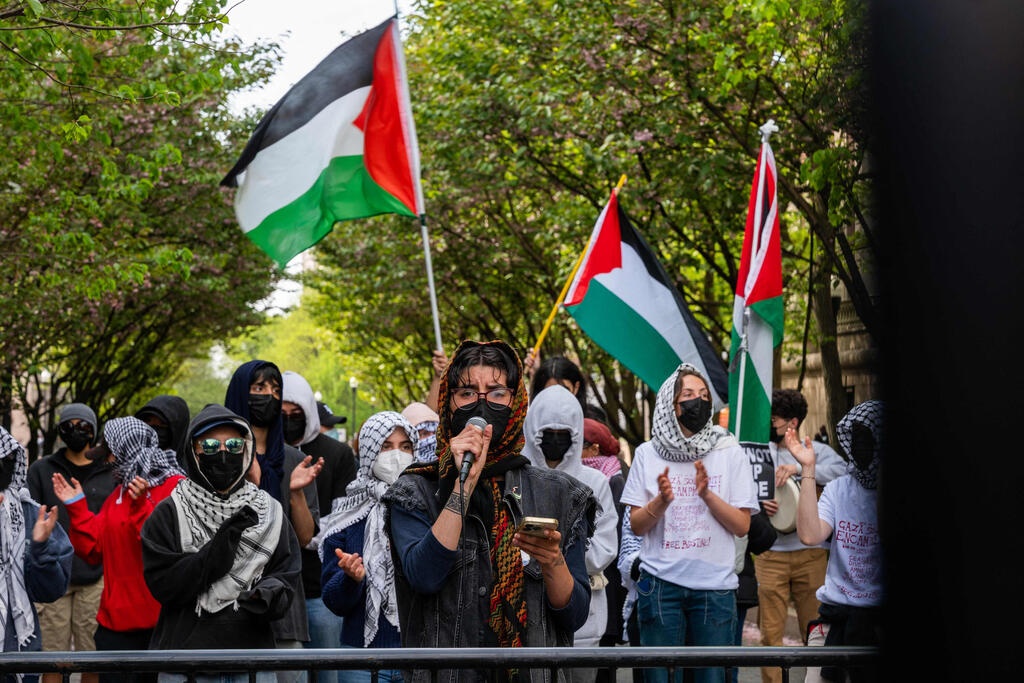

Pro-Palestinian demonstration at Columbia University
(Photo: Spencer Platt / Getty Images North America / AFP)
When asked about working with campuses and pro-Palestinian activists, she says, “The antisemitic story isn’t just anti-Jewish. It’s anti-Western, anti-American and anti-civilization, and I want to change that narrative. We are outnumbered, underfunded, and very late to the game which puts us at a huge disadvantage against the 30-year strategy of our enemies, who identified campuses as their growth laboratories long ago.
"On the other hand, there have been successes. Tair Vazani, a Nova survivor from Yavne, said during one of our challenges that participating and engaging in finding innovative solutions helps her heal. An Ethiopian participant teamed up with an Israeli team, and together they are working on an innovative project. The USC Shoah Foundation is working with us on a conference that will be held this Winter, and there is much more to come.”
Fighting antisemitism, both from the right and the left
Dr. Liram Koblentz, 43, head of the desk on global right-wing extremism and antisemitism at the Institute for Counter-Terrorism (ICT) at Reichman University, a research fellow at Brandeis University, and a visiting fellow at Yale University, explains in a phone interview from her home in Connecticut that she studies global right-wing extremism and antisemitism. Both, she says, are characterized by extreme right-wing and left-wing ideologies.
She focuses on how online rhetoric turns into real-world actions. She tracks how far-right extremists are succeeding in radicalizing and spreading Holocaust denial and incitement to violence against Israelis and Jews on mainstream platforms like TikTok, Instagram and YouTube. "I monitor how the far-right succeeds in pushing radicalism and Holocaust denial and violence against Jews onto mainstream platforms. Their tactics aim to evade detection and regulation on these platforms."
Koblentz reveals how these hate spreaders manage to bypass the “weak” protections of social networks, explaining that far-right extremists are developing various ways to appeal to different audiences, including Gen-Z, black and Muslim communities.
"They even teach how to create fake accounts and spread antisemitic content so that the messages will spread widely without anyone knowing who is behind them. Even the language far-right activists utilize uses their own code, often borrowing terms from video games. You might see conversations about a game like Minecraft but then realize they are actually talking about creating real-world damage. They often distort letters to evade detection by artificial intelligence. Sometimes by organizing video game competitions, they lure young, unsuspecting participants into consuming antisemitic content. Those who cooperate are rewarded, gradually pulling them deeper into the rabbit hole, all beneath the regulatory radar."
When asked if AI can help expose these extremists, Koblentz answers, "Some of them, yes, but they also use alternative platforms, including the encrypted ‘dark web.’ Additionally, the use of coded language and distortions can cause AI to miss things. I believe human monitoring is crucial as well. Interestingly, these extremists believe that AI, like ChatGPT, is controlled by Jews, and they look for ways to bypass it. They even teach how to fabricate seemingly authentic journalistic articles to spread hate or how to create antisemitic memes. Since October 7, we can see how classic antisemitism from the far right and anti-Zionism from the far left are converging. Antisemitism in the virtual world that spills over into the real world is a real and immediate danger.”
On October 7, while teaching a course at Yale on far-right antisemitism and terrorism, Koblentz noticed “Free Palestine” signs on campus. "I felt I had to do something. I began lecturing in synagogues, Jewish federations, the UN, universities and anywhere else I was asked about antisemitism, particularly in social networks, the dangers it poses and the importance of creating solutions. Among other places, I was invited by the Jewish Federation to a city council meeting where a one-sided proposal calling for Israel’s withdrawal from Gaza was presented. I gave my position and presented facts about Hamas. Fortunately, the proposal was rejected.
"I’ve organized rallies and exhibits to raise awareness of the hostages and show that we, too, are here–not just the vocal pro-Palestinian side. On campuses, I saw how in the massive protests and marches, the keffiyeh has replaced the swastika—even dogs are wearing keffiyehs. Far-left Jews were also among the protesters spreading slogans accusing Israel of committing genocide in Gaza."
Koblentz highlights her involvement in leading research at Brandeis University on antisemitism among young Jews: "Young American Jews are shifting leftward, and I feel that Israel is losing a large part of them due to a lack of appropriate advocacy and tools. At the same time, I’m also meeting Jewish families who say their children feel uncomfortable in the antisemitic atmosphere and, at the age of 18, want to enlist in the IDF, even though they didn’t feel the need to enlist before."
When asked for practical suggestions, Koblentz replies, "Stop preaching to the choir and instead engage with pro-Palestinian audiences who are willing to listen. Invest in the Jewish population, especially young students on campuses, and provide them with information and tools to convince others. I see the well-oiled machine of pro-Palestinian organizations on campuses spreading hateful lies, and it feels like there isn’t a single efficient, coordinated system to counter it."
"In Israel, people don’t always understand what we are going through as Israelis and Jews abroad. I truly believe that what I do academically here is important. For me, it’s like a call to action."
'I experience the events of October 7 daily'
Attorney Tal-Or Cohen Montemayor, 33, a Netanya resident, immigrated to Israel from the U.S. at age 18 as part of the Nefesh B’Nefesh lone soldier program. As the CEO and founder of CyberWell, which monitors and removes antisemitic content from social media, she explains how the social media platforms are (or aren’t) dealing with antisemitism and how hate speech on social networks can be mitigated.
"Since October 7, we have seen a sharp rise in antisemitic discourse. Over the past seven years, there has been a trend of classic antisemitism—hatred of Jews—and I have clearly seen the movement of conspiracy theories about Jewish hatred from the ‘dark networks’ to mainstream platforms. For me, it’s reminiscent of the pre-Holocaust era.”
“Our monitoring isn’t just for antisemitism on the social platforms, it’s also an analysis of how antisemitic discourse violates the platforms’ own rules. This is a solution I tried to implement even before the events of October 7. The way the discourse spread is a result of years of neglect in enforcing systemic technological policies against antisemitism. What happened on social networks that fueled violent and antisemitic discourse around the world was abduction—literally. Hamas hijacked social media for propaganda on that day, spreading their agenda far beyond the time of the actual attack."
She also addresses the spread of Jew-hatred and calls for violence after October 7 on social networks. "There were calls for young Arabs to take up arms, cross the border into Israel and attack Jews. In terms of monitoring and enforcement, the system's policy was a failure in all languages. There was always violence on social networks, but this time it was different: more conspiratorial and more violent against Jews.”
“I grew up in a Zionist home, and my dream was always to make Aliyah (immigrate to Israel). The things I do are a continuation of my Jewish-Zionist upbringing and education and what I learned along the way. It was hard for me to see how the other side worked for years to demonize us, and I was interested in how social networks allowed this to exist without criticism or constraints. That’s why, with the establishment of CyberWell, we were the first organization to expose the campaign denying the events of October 7 that surfaced online the day after, with a clear call for the platforms to ban such content in accordance with their existing digital policies."
"This campaign is a new form of Holocaust denial, where they spread claims that rape and sexual violence never happened, that Israel caused and created the catastrophe on purpose, and, worse yet, that Israel profits financially from the disaster. Our role is to provide social networks with all the data we have and recommendations on how to enforce policies against this violence. We also make all the information and examples we find in the networks openly available to the public to alert them and encourage people to report antisemitism online. People don’t bother reporting because they think, ‘It doesn’t make a difference,’ but it does."
How does the organization operate?
"It includes identifying antisemitic keywords using a custom glossary based on the definition of antisemitism as per the International Holocaust Remembrance Alliance (IHRA), which, along with more than 40 countries and over 1,000 universities worldwide, defined what antisemitism is. This is followed by two rounds of human oversight. Every piece of content our team collects is assessed based on the IHRA definition as well as the platform policies that it violates. Our team of professional analysts at CyberWell are experts in antisemitism, linguistics and digital policy."
Today, the organization monitors platforms like Facebook, Instagram, X (formerly Twitter), TikTok and YouTube in both English and Arabic. They serve as a Trusted Partner for Meta (Facebook, Instagram, Threads) and TikTok, which allows them to flag policy-violating content and advise content moderation teams.
"Since the events of October 7, we’ve submitted seven reports about the rise in online antisemitism and denial of the October 7 events to Meta, X and TikTok, and we also sent additional information to Google. As part of our data-sharing strategy, since May 2022, we’ve been compiling the first-ever open data platform on antisemitic online content—app.cyberwell.org."
Montemayor says she "experiences the events of October 7 daily."
"I think both Israelis and American Jews are experiencing the catastrophe and disaster every day, but it’s important to me that people understand that we are witnessing an eruption of Jew-hatred worldwide, and the wave ahead of us goes beyond October 7. Everything signals that the situation will worsen globally, so we have much to be thankful for and must protect our country as a proud and secure Jewish nation. The world is no longer a safe place for Jews—that’s the truth. And we must protect our country as a home and solution for all Jews, not just Israelis."
Get the Ynetnews app on your smartphone:


